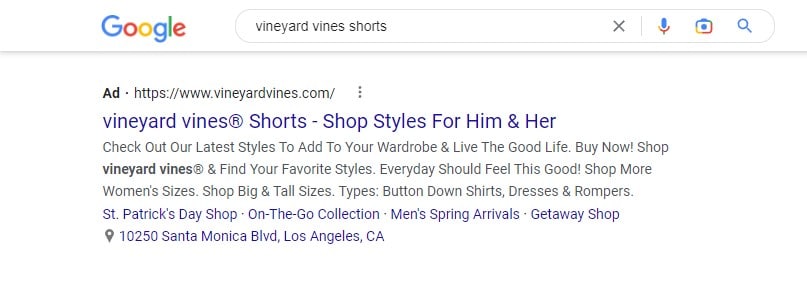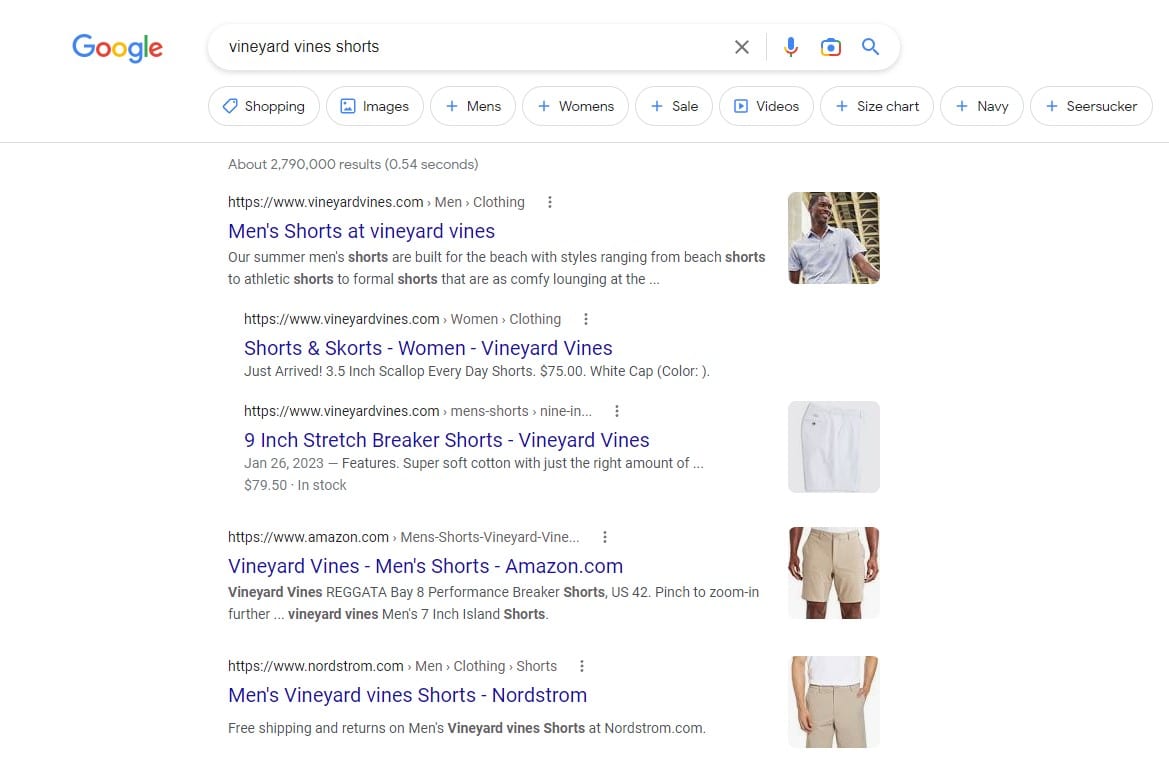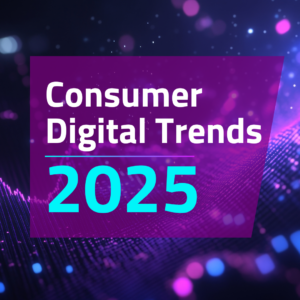Bidding on your brand terms — key terms that include your brand or company name — is underutilized in many paid search strategies. Even with established data backing up the value of bidding on these terms, many businesses looking to maximize incoming traffic aren’t taking advantage of this opportunity.
Why Should You Be Bidding On Your Brand Terms?
When implemented effectively, bidding on your brand terms can significantly increase clicks to your website and product pages. While it can have a different impact depending on what industry your business is in, brand search campaigns almost always have higher CTRs and conversion rates that generic search campaigns because the searcher is already familiar with and specifically looking for the brand.
While the overall traffic for branded terms is lower than for generic terms, the likelihood of a conversion is significantly higher for branded terms. Someone searching for your brand’s product or service is far more likely to click on an ad and complete a purchase than someone performing a more general search.
In one campaign for an eCommerce client, we saw a 4.6% conversion rate on branded search terms, more than four times higher than the conversion rate for generic terms.
Seeing higher conversion rates for branded terms isn’t new. Back in 2010, Vineyard Vines’ Direct Sales Manager Quinn Veysey sat down with Google to discuss the success of their recent branded keyword campaign.
“Our goal was to get quantitative data showing whether there was value to bidding on our branded keywords,” said Veysey, “On one hand, we felt that by bidding on our brand terms, we were paying for keywords that may have been at the top of the organic search result. On the flip side, if we were missing out on conversions/sales, it may be valuable to pay for those terms.”
Vineyard Vines found that bidding on these terms led to a 5.12% conversion rate on branded keywords. A quick Google search shows that the numbers convinced the right people that these campaigns were too valuable to ignore — nearly 13 years later, Vineyard Vines is still bidding on their branded terms.

Bidding on generic terms also tends to be more expensive than bidding on your brand terms. Your competitors are bidding on those same terms, fighting for the top spots on search results pages. These prices can jump even higher if you’re bidding on time-sensitive ads — flowers and chocolate around Valentine’s Day, Medicare coverage during the Annual Enrollment Period, snow gear during the colder months, etc.
In one campaign for a healthcare brand, generic terms cost nearly 3x more than branded keywords in cost per conversion for the same audience.
While bidding on both has value, for the audience’s search intent, branded keywords were more relevant.
I’m already ranking organically — why do branded terms matter to me?
Bidding on your brand terms when your website is already ranking can significantly boost the amount of incoming traffic your website receives. In a Google study, they found that by showing up in both the ad section as well as the organic section, websites saw as much as a 96% increase in total clicks than purely showing up organically.

You can also control which page will show up when someone searches for a specific branded keyword by bidding on your branded search terms. When someone searches for your brand plus a product or service you offer, there’s a significant chance that your homepage will be what shows up for them. In almost all cases, your homepage will show up for searches that include your business name. By bidding on specific terms, you can cut back on the friction a potential customer has when looking for a product you offer by linking to the exact product page they’re likely looking for.
Depending on your business’s products and services, a branded search may still lead people to a different website.

By bidding on your brand terms, you effectively guarantee that people searching for your product will see the exact page they want to find on your website. People searching for a specific product online are near the bottom of the marketing funnel, so conversions are typically highest for these terms — guaranteeing a position on these results pages puts your business in the best position to draw in more sales.
I’m not ranking organically — will branded terms solve all my search problems?
There’s no shortcut to overcoming ineffective SEO, but bidding on key terms can help serve as a way to maintain some presence on search results pages while you work to improve your website’s organic SEO. Building a strong SEO foundation for your website is key to sustained success online. Google recently revamped its quality rater guidelines, updating E-A-T into E-E-A-T, and continues to roll out updates to its core ranking algorithm that determines which websites rank well and which are left behind. Staying up to date with these changes and keeping your website in line with these guidelines needs to be a core part of running your online presence.
How to Effectively Use Brand Terms in Your Paid Search Strategy
In order to show up in branded searches in the first place, that person needs to already be searching for you. Bidding on branded terms needs to be part of a larger marketing strategy that takes advantage of all available marketing avenues.
In order for brand search campaigns to be effective, there have to be people actually searching for the brand, which is heavily dependent on brand awareness campaigns to educate the target audience about the brand.
Building that recognition takes time, consistent effort, and an understanding of the available channels in order to get your messaging in front of the people you want to reach. For some brands, a heavier focus on OTT and CTV advertising makes the most sense; for others, a targeted direct mail campaign will get your brand in front of the most people. In the overwhelming majority of cases, a healthy mix will be the most effective to reach your desired audience.
Bidding on your brand terms can be one of the most effective ways to turn that attention and recognition into clicks and conversions. Not only can bidding on your brand terms be cheaper than bidding on generic terms given the lesser competition, the people who end up seeing those ads are already primed to click through to your website and seriously consider completing a purchase.
Improving conversions through bidding on your brand terms is only one part of a data-centric, performance-driven strategy, giving you the power to know more and do more. Dig deeper into how you can take advantage of different types of advertising channels, or let’s talk about how to achieve more for your marketing—and your business.






